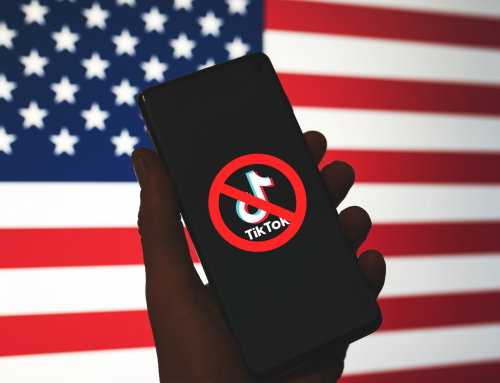With the latest updates to its mobile operating systems, Apple wants to better protect its users’ data and give them simple control mechanisms over the further processing of their personal data. To the delight of many users and to the annoyance of large online corporations.
The focus is on so-called tracking, i.e. the collection of user data across pages or apps. A flood of information can be collected and combined into profiles, which in turn enable targeted advertising. There is a lot of money to be made from this, and trading in user data is an extremely profitable business.
Apple is increasingly putting a stop to this. Starting with an update to the iOS 14.5 operating system, users can decide for themselves whether apps are allowed to track them for marketing and advertising purposes. Since then, apps have to ask the user whether he or she agrees to tracking. In the settings, rules can be set and managed individually for different apps, or tracking can be deactivated in general – then every request from an app is automatically rejected.
Companies and advertising industry in turmoil
At the same time, it is to be expected that probably only a few users will actively decide to release their data and also take the trouble to create individual case rules for specific apps in the privacy settings of their iPhones. It is much more likely that they will simply stop tracking altogether. And in view of dwindling revenues, there is quick criticism of Apple’s strategy. There is talk of unfair competition. Apple wants to squeeze free apps financed by advertising out of the market, leaving users with only paid apps that Apple earns money from through their history in the App Store. In addition, associations criticize Apple for continuing to collect user data itself, while competitors are prevented from processing user data commercially. As a result of this development, eight associations of the media and advertising industry in Germany have filed complaints with the Federal Cartel Office , and proceedings have already been initiated.
Data protection as a central issue
Apple refutes the accusations and appears unimpressed by the strong headwind. “We at Apple believe that data protection is a fundamental right” proclaims software developer Craig Federighi on June 7, 2021 at WWDC21, the World Wide Developers Conference. Similar phrases can be found on the company’s website, which talks about data protection as a “core value”.
But where does Apple’s demonstrative love of data protection come from? Critics see broader financial interests in addition to the potential revenue from the App Store. After all, Apple’s business is the sale of high-priced hardware, and the message to users of mobile devices is more than clear: your data is protected from unauthorized access on our devices. In times of increasing security awareness, this could persuade many users who previously found Apple’s hardware too expensive to pay the premium prices of the Cupertino-based company in the future. Especially since the much cheaper competition is still lagging behind Apple and has so far shown little interest in aggressively focusing on data protection. Although new data protection measures are also to be implemented in Android by the end of the year, users have to actively object to tracking by opting out, which leads us to expect much lower rejection rates than with an opt-in.
Data protection as a fundamental right – but also for everyone?
The more or less self-contained system has always been considered secure in the general perception; only apps tested and certified by Apple can be installed via the app store. Viruses and attacks by malware were not an issue for Apple operating systems for a long time. And so everyone who placed particular value on security relied on the products from Cupertino.
But the myth of the safe Apple is also beginning to crumble and Apple’s credibility is increasingly under scrutiny. According to research by the New York Times, Apple is said to have compromised on the protection of Chinese users’ data. China is not only a huge market for Apple, but also its most important manufacturing partner. Certain dependencies cannot be denied and the Chinese leadership is increasingly making demands. For example, servers with user data should be under the control of Chinese companies, modern encryption technologies should not be used, and unwelcome applications in the app store should be censored.
Apple responds to these accusations by saying that it complies with the laws in force in China and does everything in its power to protect user data.
New balance of power?
For users in this country, this should only spoil the joy of the new data protection features to a limited extent. And for Apple, the increased focus on data protection could certainly pay off. Competitor Android currently dominates the market, but could lose users if similar solutions do not follow soon. And due to the close connection of Android with Google services, stricter data protection guidelines would probably also go hand in hand with a cannibalization of the company’s own revenues through personalized advertising. Not exactly a great incentive for those responsible to take action quickly. And so Apple’s new love for data privacy could well have an impact on the distribution of power in the mobile market.







